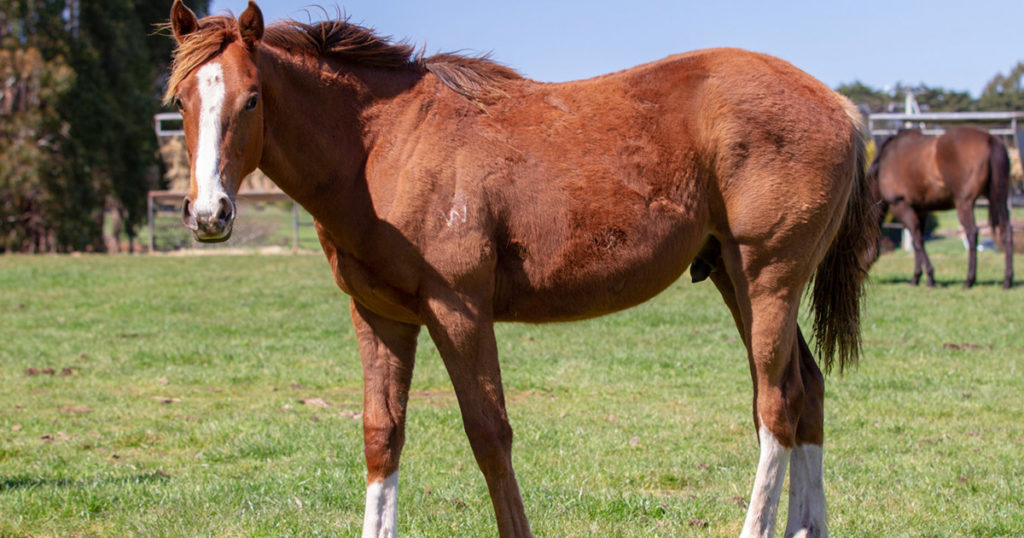When we transition from winter into spring or from summer into autumn/fall weather, we can suddenly find that our horses have increasing amounts of green grass to graze.
With plenty of fresh pasture available, it can be tempting to stop feeding or reduce the amount of hay we give our horses. Yet if we want them to have good gastrointestinal (GI) ‘gut’ health, then keeping feeding sufficient hay to them is a must! To learn more about the important role of hay in the diet, visit the article: Hay, Stomach (Gastric) & Hindgut (Colonic) Ulcers.
Green grass is predominantly water and as a result, is low in dry matter fibre. Dry matter fibre is incredibly important for our horses and ponies for a multitude of reasons. Dry matter fibre supports the proliferation of and helps to maintain a healthy GI microflora population. To read more about fibre, see Fibre, Chewing and Gastrointestinal Health.
Dry matter fibre is also needed for the production of short chain fatty acids (SCFAs) also known as volatile fatty acids (VFAs). Short-chain fatty acids are predominantly produced by the fermentation of fibre by the GI microbiome.
These SCFAs have many health benefits, including significant anti-inflammatory and immune-regulating properties. Furthermore, they help to promote the production of specific neurotransmitters (chemical messengers) which help our horses to be calm and relaxed. They have also been shown to help decrease fat accumulation and improve insulin sensitivity (an important consideration with insulin resistance, laminitis and equine metabolic syndrome (EMS)).
From a direct gut health standpoint, SCFAs play a crucial role to help promote proper GI barrier function- thereby helping to protect against the development of gastric and colonic ulcers. To read more about ulcers, see articles: Hindgut (Colonic) Ulcers in Horses and Ponies; and Ulcers in Horses: The importance of understanding how medications work.
Sometimes the simplest things can make the most profound difference in helping the overall health of our horses and ponies. Adequate fibre is one important dietary measure we can put in place to help promote calm behaviour in our horses, support sound bone and joint health, reduce inflammation, and reduce the risk of laminitis, insulin resistance and EMS.
Prefer listening to podcasts or watching webinars to learn more about gut health, ulcers, immune health and other equine health conditions? Be sure to visit our Media page for plenty of informative recordings.

Camilla Whishaw is a highly regarded, experienced horsewoman and naturopath, helping to holistically treat and manage a broad range of equine health conditions and injuries, with a passion for mare and stallion fertility.
As a world-renowned practitioner, presenter, author, and consultant in the field of Equine Naturopathy, Camilla shares her knowledge through keynote presentations, interviews, lectures, panel sessions, and workshop training.





